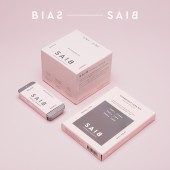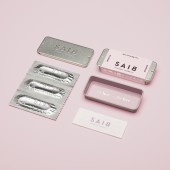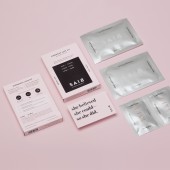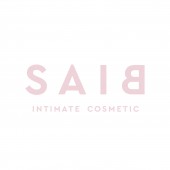Saib Intimate Cosmetic Brand Identity System by Saib & Co. |
Home > Winners > #77023 |
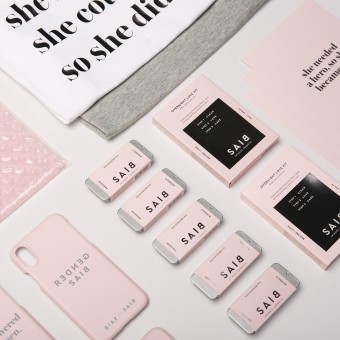 |
|
||||
| DESIGN DETAILS | |||||
| DESIGN NAME: Saib Intimate Cosmetic PRIMARY FUNCTION: Brand Identity System INSPIRATION: The condom usage rate in Korea stands at a mere 11.5%, and more than 60% of women do not use any contraception at all. This reluctance is rooted in lingering gender-based double standards. Men consider condoms a sign of distrust, and women are expected to be sexually passive. Almost every condom brand on the Korean market is designed solely for male consumers. Their arousing branding and packaging design, accompanied by a masculine tonality, completely push women further away from this market. UNIQUE PROPERTIES / PROJECT DESCRIPTION: Launched in South Korea, a society remaining surprisingly patriarchal and conservative, SAIB was initiated to tackle the entrenched cultural taboos around female sexuality. The brand "SAIB" is an inversion of the word "BIAS", signaling an overturning of the gender bias. To destigmatize negative perceptions around women exercising sexual agency, SAIB products are designed to resemble cosmetic brands, so that women feel comfortable and proud to carry and use them without any shame or stigma. OPERATION / FLOW / INTERACTION: - PROJECT DURATION AND LOCATION: The project started in March 2017 in Seoul, and the brand was initiated in February 2018 and products were launched in September 2018. FITS BEST INTO CATEGORY: Graphics, Illustration and Visual Communication Design |
PRODUCTION / REALIZATION TECHNOLOGY: The metal tin case was used for condom package, printed package with silver foil stamp was used for the overall product package. SPECIFICATIONS / TECHNICAL PROPERTIES: - TAGS: Condom, Sexual Wellness, Gender Equality, Women's Right, Contraception, Cosmetics RESEARCH ABSTRACT: Condoms are without argument the easiest method for having safe sex—specifically, protecting oneself against sexually transmitted infections and unintended pregnancies. However, the rate of condom usage in South Korea is standing the lowest among all member states of the OECD. The reluctance toward using condoms is rooted in cultural biases. Specifically, Korean men consider condoms a denial of intimacy and a sign of distrust. Making the issue more difficult is that when women provide their own condoms, they are seen as sexually promiscuous or impure, and thus Korean women are willing to go to many lengths to avoid this sort of slut-shaming, even if it means bearing the burden of unsafe sex. The major condom brands in the Korean market today are produced and designed solely for male consumers. Everything about the condom, from its branding to its package design to its tone of communication, is geared towards men. This characteristic creates an invisible barrier against women, indoctrinating them into believing that condoms are solely the property of men, a sad reality that pushes women further away from this market at every step. Condoms are in fact classified as a medical device. They are for the most sensitive areas of our bodies, and for women, they actually go inside our bodies. However, in a context where the product is made exclusively with male consumers in mind who value sexual pleasure more than female health and safety, condom companies often only care about the sex appeal of their product and have no interest in avoiding ingredients that might be harmful to women. CHALLENGE: Despite South Korea’s rigorous economic and technological advancement over the last half-century, a deep vein of traditional Confucian values still courses through society. A nation with egregious gender inequality despite its modernization, South Korea is one of the most patriarchal and conservative countries in the world. In fact, according to the World Economic Forum’s 2017 Global Gender Gap Report, South Korea ranked 118th out of 144 countries in terms of gender equality, just below Ethiopia and Tunisia and only above a few Middle Eastern countries. In comparison with Western cultures, South Korean society is much more sexually conservative. Moreover, lingering gender-based double standards make the problem much more complicated. Although Korean men and women are increasingly sexually active and discuss these matters much more openly than in the past, they remain surprisingly conservative in terms of female sexuality. The imposed attitudes on women’s expected social roles have not yet changed. Korean society still emphasizes the importance of women’s virginity, with single women expected to be sexually passive in their relationships. It is 2018, but female sexuality is still a highly taboo subject that is not openly discussed. When women talk about their sex lives publicly, they will likely be slut-shamed and possibly even become targets of misogynistic hate crime. ADDED DATE: 2019-02-17 03:31:31 TEAM MEMBERS (2) : Jiwon Park (Executive Creative Director) and Jungmin Choi (Designer) IMAGE CREDITS: All Photos © SAIB & Co. Photographers: Jinwon Yang, Yaechan Lee |
||||
| Visit the following page to learn more: https://www.saibnco.com/ | |||||
| AWARD DETAILS | |
 |
Saib Intimate Cosmetic Brand Identity System by Saib & Co is Winner in Graphics, Illustration and Visual Communication Design Category, 2018 - 2019.· Press Members: Login or Register to request an exclusive interview with Saib & Co.. · Click here to register inorder to view the profile and other works by Saib & Co.. |
| SOCIAL |
| + Add to Likes / Favorites | Send to My Email | Comment | Testimonials | View Press-Release | Press Kit |

